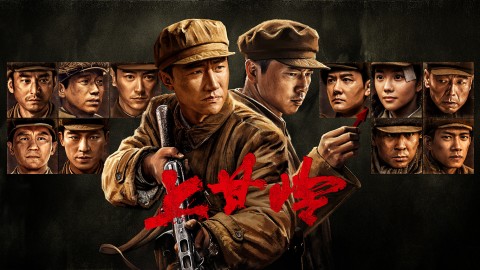Episode 29 recap: Lawyer Zhong persuaded Qin Hou Tu.
Lawyer Zhong persuaded Qin Hou Tu.Qi Heng noticed that the atmosphere among everyone was heavy. It turned out that the villagers had been guarding the river 24 hours a day, making it impossible for them to collect samples. Forced execution was also not an option, making the upcoming work extremely challenging.
The manager of Jiangyun Chemical Plant visited the injured worker, urging him not to say anything and giving him a large sum of consolation money. The worker promised not to reveal the cause of his injury. Secretary Su had made the necessary preparations as advised by Lawyer Chen Shu, but now there was no way to obtain evidence. The prosecution also presented their defense, stating that the factory had discharged waste gases and wastewater multiple times, but the defense team refused to accept it. The Environmental Protection Bureau also rejected the prosecution's demands. Subsequently, the prosecution presented all their evidence, which clearly demonstrated significant issues with Jiangyun Chemical Plant and the severity of their pollution discharge.
The residents of Matou Village had also suffered heavy metal cadmium pollution ten years ago. Although this was an established fact, Secretary Su informed Chen Shu that Luo Huai Gong's current request was to establish no connection between the chemical plant and the villagers' illnesses. Chen Shu provided the corresponding rebuttal in court, stating that all sewage pipes had been blocked with concrete and their actions were reasonable and legal.
Qi Heng could only conclude that due to insufficient evidence, the court temporarily rejected all their evidence and could only accept the defendant's suggestions. This situation caught them off guard and was undoubtedly decisive. Chen Shu presented the prepared photos and argued that the sewage pipes had long been buried in the soil, asserting that the villagers' illnesses had no connection whatsoever to the chemical plant. Chen Shu continued to explain tirelessly that there was no relationship between the sewage pipes and the chemical plant, backed by ample evidence, which caught the plaintiffs off guard. They even stated that they would not offer any compensation. In the end, Qi Heng announced that the case would be adjourned for further review.
Next, everyone began discussing the matter privately. It was indeed a case of the plaintiffs being somewhat negligent. Ma La Song also shared his thoughts. Although Qi Heng knew that the plaintiffs were likely correct, he had to adhere to legal principles and consider the evidence. As the presiding judge, he couldn't favor either side.
Soon, the plaintiffs discovered new clues. It turned out that the workers were working overnight to dismantle the sewage pipes and pipes in other workshops. This scene happened to be captured on camera. They were trying to cover up the evidence of wastewater discharge from the factory. The favorable information was actually provided by a staff member from the Environmental Protection Bureau. However, when asked to testify, the staff member hesitated. After all, they currently held a job within the system, and there were many vested interests involved. If they became the scapegoat, they might even lose their job.
However, these photos alone couldn't provide conclusive evidence. Suddenly, a staff member from the Environmental Protection Bureau remembered that the team leader of the wastewater treatment workshop had been hospitalized recently. Perhaps they could investigate from that angle. Ma La Song called Qi Heng to inform him that Guo Lun had been hospitalized due to a fever, and he needed to go and take care of him temporarily. Upon learning the situation, Qi Heng went along as well. Coincidentally, they saw a resident of Matou Village in the hospital ward. However, the lawyer stopped Qi Heng and informed him that he had learned from a nurse that the villager had been injured by a heavy object. Due to Qi Heng's special status, he couldn't engage in extensive discussions with the other party.
The lawyer managed to find the villager, Qin Hou Tu, and inquired about the situation. However, Qin Hou Tu repeatedly emphasized that his injuries had nothing to do with the factory. The lawyer assured her that he would strive to secure some compensation for her. However, the worker felt that even with compensation, it wouldn't be much money. The lawyer, feeling somewhat helpless, had to leave for now.
When Guo Lun woke up, his brother-in-law was there taking care of him. However, he still hadn't fully forgiven Qi Heng. Fortunately, Ma La Song had been acting as a mediator and hoped that the tension between them could be resolved soon. One day, Qin Hou Tu suddenly discovered that her daughter was catching crayfish in the foul ditch. She scolded her daughter severely since the ditch was indeed toxic. This incident deeply affected Qin Hou Tu, and she decided to seek out the lawyer.
The day of the trial arrived quickly. Qin Hou Tu appeared as the first witness in court and publicly stated that the chemical plant was indeed discharging toxic wastewater. In fact, the so-called wastewater treatment equipment purchased by the factory had never been used.



Comments(Episode 29)